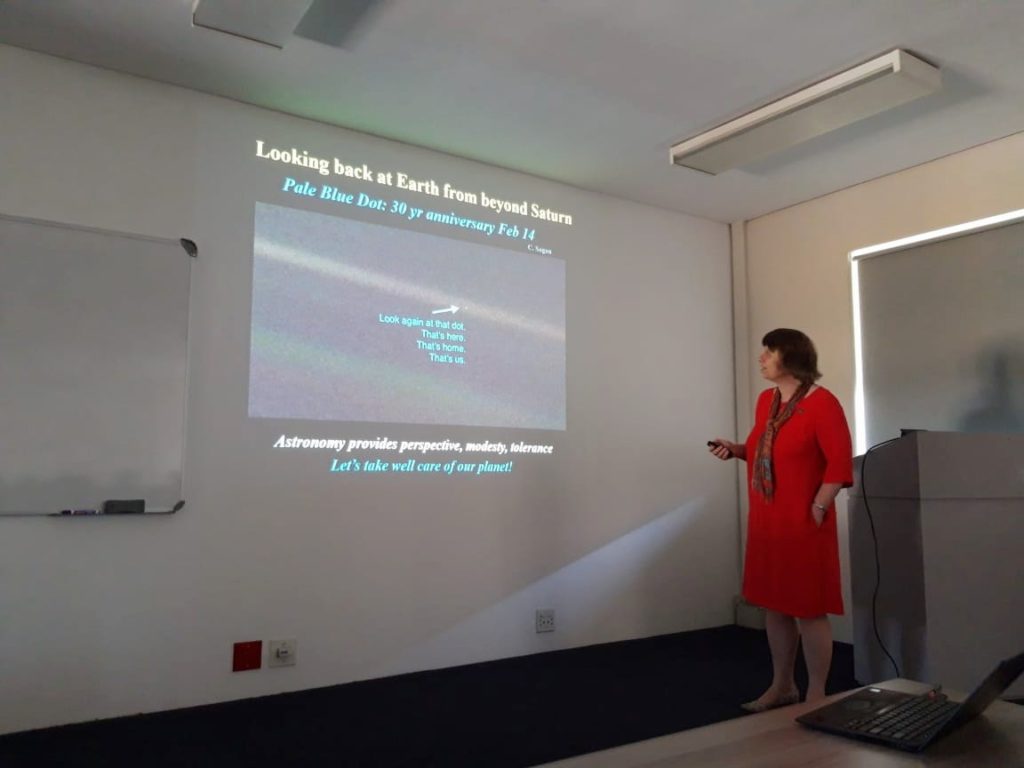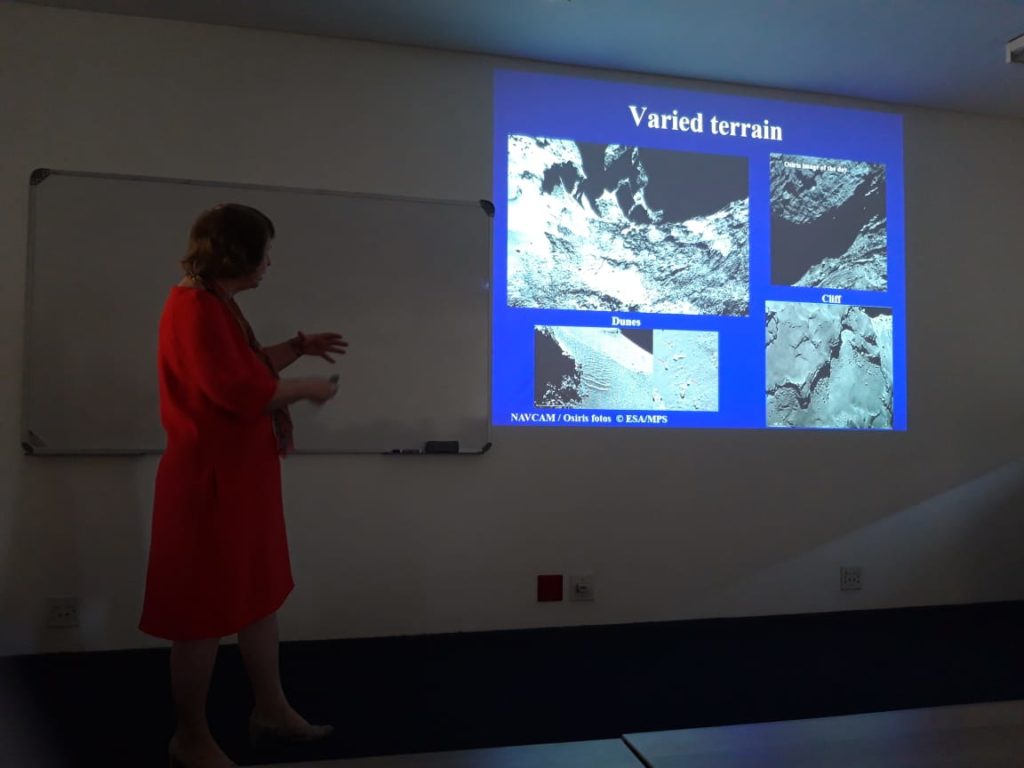The Inter-University Institute for Data Intensive Astronomy was honoured to have Prof. Ewine Fleur van Dishoeck, professor of Molecular Astrophysics at Leiden Observatory and president of the International Astronomical Union (IAU), who dedicated a whole morning out of her incredibly busy schedule to deliver a special colloquium at the Department of Physics and Astronomy at the University of the Western Cape.
Prof. van Dischoeck kicked off her visit with a visit to an outreach programme, Astro Molo Mhlaba, a programme co-sponsored by UWC and the Office of Astronomy for Development, an office of the IAU itself its outreach projects. The morning visit was based at Molo Mhlaba School in Harare, Khayelitsha, where the Astro Molo Mhlaba programme takes place. Prof. van Dischoeck was taken on a tour of the school by the school’s founder and director , Dr Rethabile Mashale-Sonibare, where she had the opportunity to learn more not only about the astronomy programme, but also about the incredible STEM-focused education that underserved girls from the local community receive at the school.
Prof. van Dischoeck then proceeded to the Department of Physics and Astronomy to present her current research. Thanks to the interdisciplinarity of her work, there was a large audience in attendance who come from a variety of backgrounds that included Astronomy, Physics and Chemistry. Prof. van Dishoeck works at the interface between astronomy and chemistry, and this informed her presentation. Prof. van Dischoeck’s talk touched upon one of the most exciting recent developments in astronomy: the discovery of thousands of planets around stars other than our Sun. The question of how these exo-planets form, and what factors lead to the variety of properties we observe in them, is still an open one. Thanks to powerful new telescopes, such as ALMA, astronomers are able to zoom in on planetary construction zones for the first time, leading to the discovery of water and a surprisingly rich variety of organic materials, including simple sugars.
“Can these pre-biotic molecules end up in comets and ultimately new planets and thus form the basis for life elsewhere in the universe? What did the Rosetta mission find when it landed on comet 67P?” These incredibly fundamental and exciting questions inevitably led to numerous questions and much excitement from the audience.
The visit was concluded with a tour of the Inter-University Institute for Data Intensive Astronomy offices at the University of the Western Cape.


